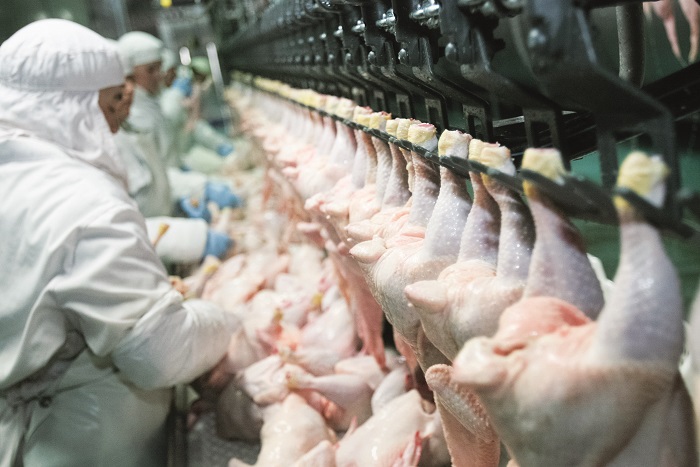Moody’s Investors Service has downgraded the parent company of 2 Sisters Food Group, Boparan Holdings Limited, due to thin margins and ‘limited prospects’ of material recovery in the coming 12 months.
The ratings company downgraded the firm to B3 from B2 and probability of default rating (PDR) to B3-PD from B2-PD. The outlook on all ratings remain negative.
“The downgrade of Boparan’s ratings to B3 with a negative outlook is driven by the lower EBITDA in the last fiscal year 2016-17 as well as limited prospects of a material recovery in the next 12 months, which would result in a sustained high financial leverage, thin margins and weak to slightly negative free cash flow generation. There could also be refinancing risk with respect to the GBP250 million senior notes due in July 2019 if operating performance and credit metrics do not improve,” said Eric Kang, a Moody’s analyst.
RATINGS RATIONALE
The B3 CFR with a negative outlook reflects Moody’s expectation that Boparan’s credit metrics will remain weak for a sustained period of time due to limited prospects of a material recovery in operating performance in the next 12 months. Moody’s also cautions that the company’s liquidity could continue to weaken in the next 12 months due to the rating agency’s expectation of weak to slightly negative free cash flow generation after pension contributions, as well as refinancing risk in 2019 if profitability and credit metrics do not improve.
Moody’s expects EBITDA improvement in the next 12 months to be constrained by delays in recovering high input costs due to the price sensitive food retail market in the UK, competitive pressures, and further increases in the national living wage. Additional measures to strengthen quality control following the recent hygiene failings allegations will also further pressure already thin margins.
The EBIT margin was 2.4% in fiscal 2017 ended 29 July 2017 on a Moody’s-adjusted basis including restructuring costs of GBP23 million. However, Moody’s expects the UK poultry operations to be less affected by higher input prices because approximately 70% of UK poultry sales benefit from contractual pass-through arrangements for key poultry feedstock including currency impact, albeit with a time-lag of approximately three months.


